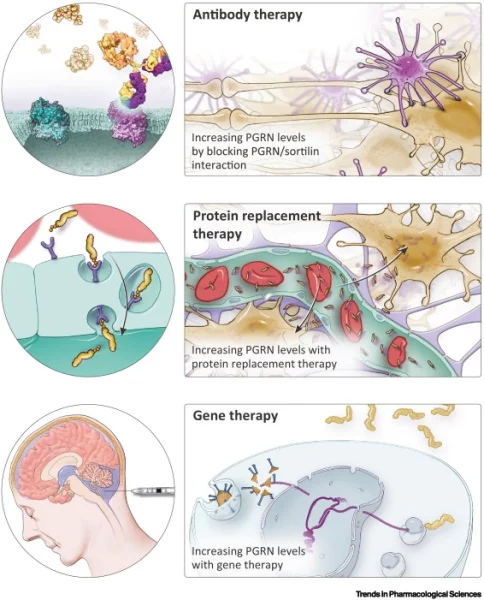The latest breakthroughs in medicine have brought tremendous hope to millions of families worldwide, as a blood test can detect early signs of Alzheimer’s disease up to 10 years before the first symptoms appear. A groundbreaking study from King’s College London and the Medical Research Council (MRC) of the United Kingdom, published in the journal Alzheimer’s & Dementia in 2023, shows that the reduction of a particular protein in the blood – called PGRN (progranulin) – can predict the early onset of Mild Cognitive Impairment (MCI), often a precursor to Alzheimer’s disease. “This protein reduction not only predicts cognitive decline but also closely correlates with abnormalities in brain structure,” the study confirms.

The significance of this discovery becomes even clearer when viewed in a global context. According to a report from the World Health Organization (WHO) released in 2023, Alzheimer’s currently affects 55 million people worldwide, and this number could rise to 139 million people by 2050. While traditional diagnostic methods are only performed when symptoms are apparent, detecting the disease at an early, asymptomatic stage could completely change the approach to treatment. Professor Tara Spires-Jones from the University of Edinburgh emphasized in the journal The Lancet Neurology: “Detecting the disease at an asymptomatic stage is of immense significance, as it not only enables early intervention but also slows the progression of the disease.”
Not only does this blood test offer a diagnostic breakthrough, but it also opens up the possibility for personalized treatment. High-risk individuals, such as those with the APOE4 gene (associated with Alzheimer’s risk), could be closely monitored and receive preventive measures early. Dr. Rosa Sancho from the Alzheimer’s Research UK shared in the annual report of 2023: “A deeper understanding of blood biomarkers like PGRN will play a foundational role in the development of more effective treatments.”
“When we understand the nature of these biomarkers, we can optimize disease prediction, thereby minimizing Alzheimer’s impact on society,” quoted from research by the Alzheimer’s Association, published in the journal JAMA Neurology in 2023.

This invention is also a powerful testament to the collaboration between technology and medicine in addressing humanity’s greatest challenges. From a simple blood test, scientists have been able to uncover the complex relationship between biological factors and brain function, paving the way for groundbreaking therapies in the future. With advances like these, science not only saves lives but also improves the quality of life for millions of people.


HPX24h > Science > Blood Test: A Breakthrough in Early Detection of Alzheimer’s Disease
Tagged Articles
The Link Between Daytime Sleep and Alzheimer’s Disease: What You Need to Know
Why Do Experts Believe Alzheimer’s Is an Autoimmune Disease Rather Than a Brain Disorder?
Top Reads from This Category
Science
Your Body Is Not the Same as It Was 10 Minutes Ago: The Continuous Regeneration Process of the Human Body
Science
Innate Intelligence: What Role Do Genetics Play in Developing High IQ
Science
Science Uncovers the Brain’s Process of Storing New Ideas
Science
NSF Job Cuts: Who Benefits and Who Bears the Consequences?
Science
The Secret of the Bee Brain: New Technology Enables Drones to Fly Independently
Science
Work 3.5 Days a Week and Live to 100: This Could Be Your Future
Science
Stem Cell Therapy for Lung Cancer: A New Hope Entering Human Trials
Discover New Topics
Health
What Is Epigastric Pain and What Causes It
Health
Playing with Dirt: The Surprising Secret to Children’s Health and Immune System
Parenting Tips
Teaching Children Respect: Simple Tips for Parents with Kids Aged 6 to 8
Fitness
Why Do You Get Headaches After Exercise? Causes, Remedies, and Effective Prevention
Space
18 New Planets: Unlocking the Gateway to Exploring Giant Star Systems
Healthy Eating
How Much Protein Do You Need Daily: What’s Sufficient for Your Body
Health
5 Tips to Help You Overcome Smartphone Addiction
Parenting Tips
Excessive Night Sweating in Children – A Normal Occurrence or a Cause for Concern?
Fitness
Risk of Increased Mortality in Diabetics Due to Prolonged Sitting: A Warning and Action Guide
Healthy Eating
The Comprehensive Guide to the 16:8 Intermittent Fasting Diet
Fitness
Postpartum Fitness: Secrets to Maintaining an Active Routine for a Quick Recovery
Animals
Male Spiders Sacrifice Themselves to Protect Future Generations
Science
Recreating the Mouse Brain in a Virtual World: The Future of Neuroscience